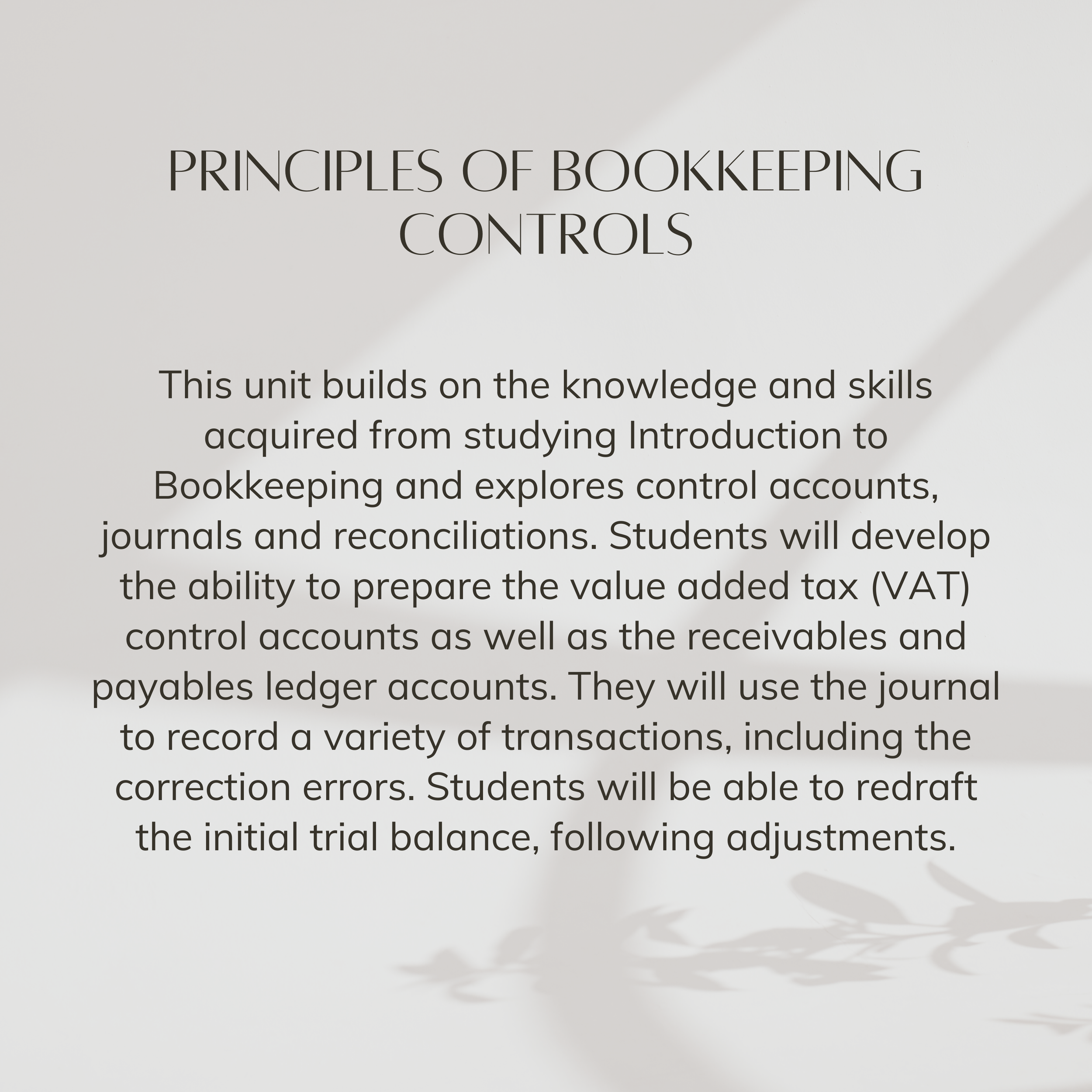 Image 1 of
Image 1 of


Principles of Bookkeeping Controls
This unit builds on the knowledge and skills acquired from studying Introduction to Bookkeeping and explores control accounts, journals and reconciliations. Students will develop the ability to prepare the value added tax (VAT) control accounts as well as the receivables and payables ledger accounts. They will use the journal to record a variety of transactions, including the correction errors. Students will be able to redraft the initial trial balance, following adjustments.
Learning outcomes
Use control accounts.
Reconcile a bank statement with the cash book.
Use the journal.
Produce trial balances.
This unit builds on the knowledge and skills acquired from studying Introduction to Bookkeeping and explores control accounts, journals and reconciliations. Students will develop the ability to prepare the value added tax (VAT) control accounts as well as the receivables and payables ledger accounts. They will use the journal to record a variety of transactions, including the correction errors. Students will be able to redraft the initial trial balance, following adjustments.
Learning outcomes
Use control accounts.
Reconcile a bank statement with the cash book.
Use the journal.
Produce trial balances.
This unit builds on the knowledge and skills acquired from studying Introduction to Bookkeeping and explores control accounts, journals and reconciliations. Students will develop the ability to prepare the value added tax (VAT) control accounts as well as the receivables and payables ledger accounts. They will use the journal to record a variety of transactions, including the correction errors. Students will be able to redraft the initial trial balance, following adjustments.
Learning outcomes
Use control accounts.
Reconcile a bank statement with the cash book.
Use the journal.
Produce trial balances.
